Stepson interview with Bruce Hauser & Len Fagan
Stepson signed with ABC and released a classic hard rock album in 1974 with early punk influences. Joey Newman on guitar, Jeff Hawks on vocals, Bruce Hauser on bass and Len Fagan on drums. Len Fagan was ex-members of the group Touch.
It’s great to have Stepson guys on It’s Psychedelic Baby Magazine! How are you?
Bruce: Very well thanks for asking and you. Thank you for inviting us.
Len: How am I?? Lemme tell ya, getting older is a bitch!! I suggest to all your readers that they have as much wild fun as they can, while they are young.
Where and when did you grow up? Who were your major influences?
Bruce: I was born in a town called Peckville in north eastern Pennsylvania but we lived in a very small community called Montdale. The first school I attended was for students from kindergarten through 12th grade. Our family moved to another small town in central Connecticut when I was in 2nd grade so that’s really where I grew up. I did the things that young boys do, like riding my bicycle and playing sports. In 1956, when I was 8 years old Elvis Presley had six hit singles and appeared on the Ed Sullivan show in September. The show was on early enough in the evening for even an 8 year old to watch. I wanted to be Elvis and play Rock & Roll music from then on. On Halloween night 1956, I went trick or treating dressed as Elvis with burnt cork colored sideburns, pomade in my hair and a guitar borrowed from my older cousin who had moved on to drums by then. As I grew up and became interested in other past-times like sports and girlfriends, music remained a big influence in my life and was always with me. I took “formal” guitar lessons for a while but it wasn’t rock & roll and I quickly lost interest. I was asked to join my first band and be the bass player when I was fourteen and of course I accepted the offer.
Len: I was raised in NYC until I was 15. Then my family moved to the San Fernando Valley in L.A., just over the hill from Hollywood. In NYC, I learned to “keep one foot in the gutter at all times.” I was a very skinny, little kid, and bullying was something I faced most every day. Thus, I eventually learned not accept such treatment from anyone. That has remained a primary theme in my life.
I was influence by most everything I heard on the radio in NYC. Doo-wop, The Chantells, Eddie Cochran, Dion, Gary U,S, Bonds, The Skyliners, Del Shannon, Bobby “Blue” Bland, and so many others.
What was the scene back in your town?
Bruce: It was a small town with a population of less than 1000. The soda fountain at the Orchard Pharmacy was where we teens would hang around drinking cherry cokes and reading magazines off the rack. Thinking back, the owner was a very tolerant man for letting us do that. We had a pizza shop with a jukebox in 1963 when the Kingsmen’s version of “Louie Louie” and Little Stevie Wonder’s “Fingertips Part 1&2” were hits and we used to hang around there playing the jukebox but it closed within a year.
Len: As for the scene in my NYC town, for me, there wasn’t much of a scene. I began playing drums in the fifth grade, and soon my dad bought me a set of drums to play in my room. So my scene consisted of practicing and playing along with records in my room much of the time, playing stickball with some trusted friends on the street, or the ominous task of attending school, while trying to avoid every threat that lurked around each hallway.
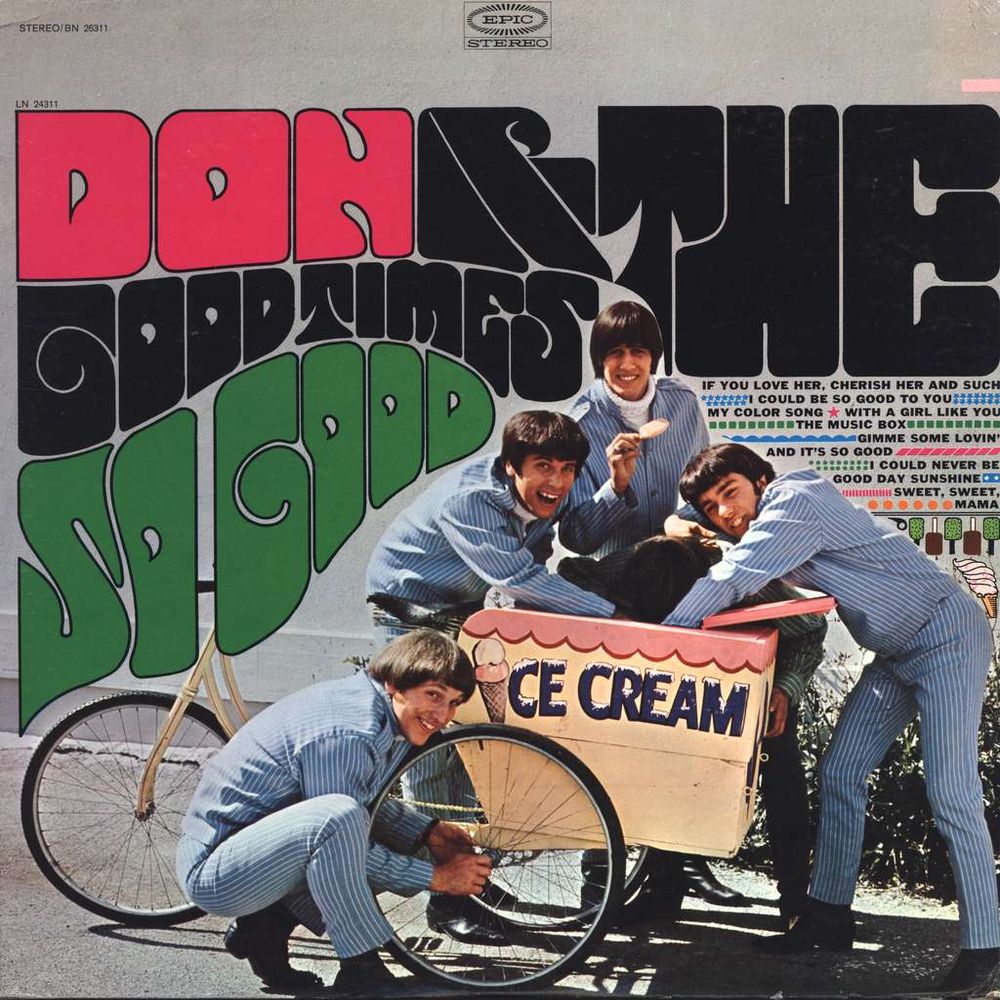
Joey and Jeff were in Don and the Goodtimes releasing a couple of singles and two LPs.
Len: I didn’t play with a band I was happy with until early 1968, when I was a founding member of a group called Wichita Fall. We were a kind of Buffalo Springfield style, but after securing an album deal with Liberty/Imperial records, they cut our balls of, put an orchestra on the album, and I hated what our melodic Rock band had been turned into. The album was re-released in 2011, on a label, out of England, called Cherry Red/Tune In. It included extensive liner notes and two bonus tracks, and it STILL sucks!!
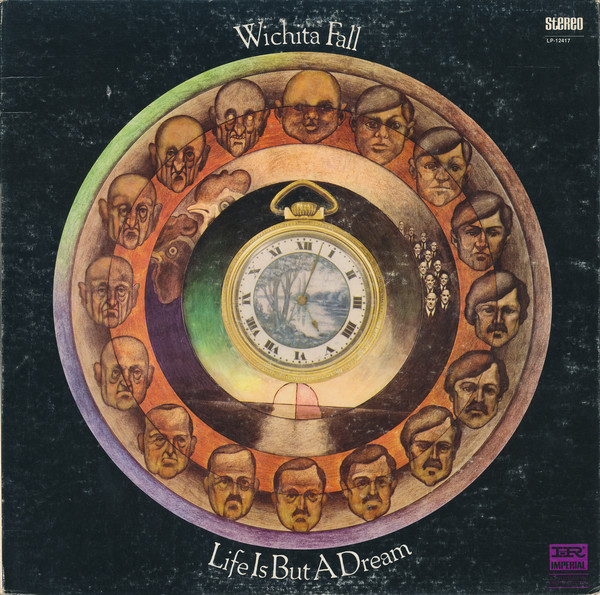
Then I was in a band called The Freebs, along with a keyboard player and guitarist, named Harry Garfield, and Alan Wisdom, who were both far more versatile players than I. Many of the original songs had a Mose Allison, jazzy/Bluesy feel to them, and I was proud to be in that band. Both of the guys had been in the Music Machine at one time, by the way. We landed an album deal with Uni Records, did some recordings with Dave Hassinger in his new studios, but the label halted the album because they thought we were getting “too greedy”, when we asked for a new Van to tour in and new equipment. After that, I formed a new, very hard rock, street band that was composed of mostly derelicts, like myself. Including lead singer Darryl DeLoach, and bassist Jerry Penrod, both from the original Iron Butterfly’s first album. Our lead guitarist was Erik Braunn, from the Butterfly’s huge, hit album, “In-A-Gadda-Da-Vida”.
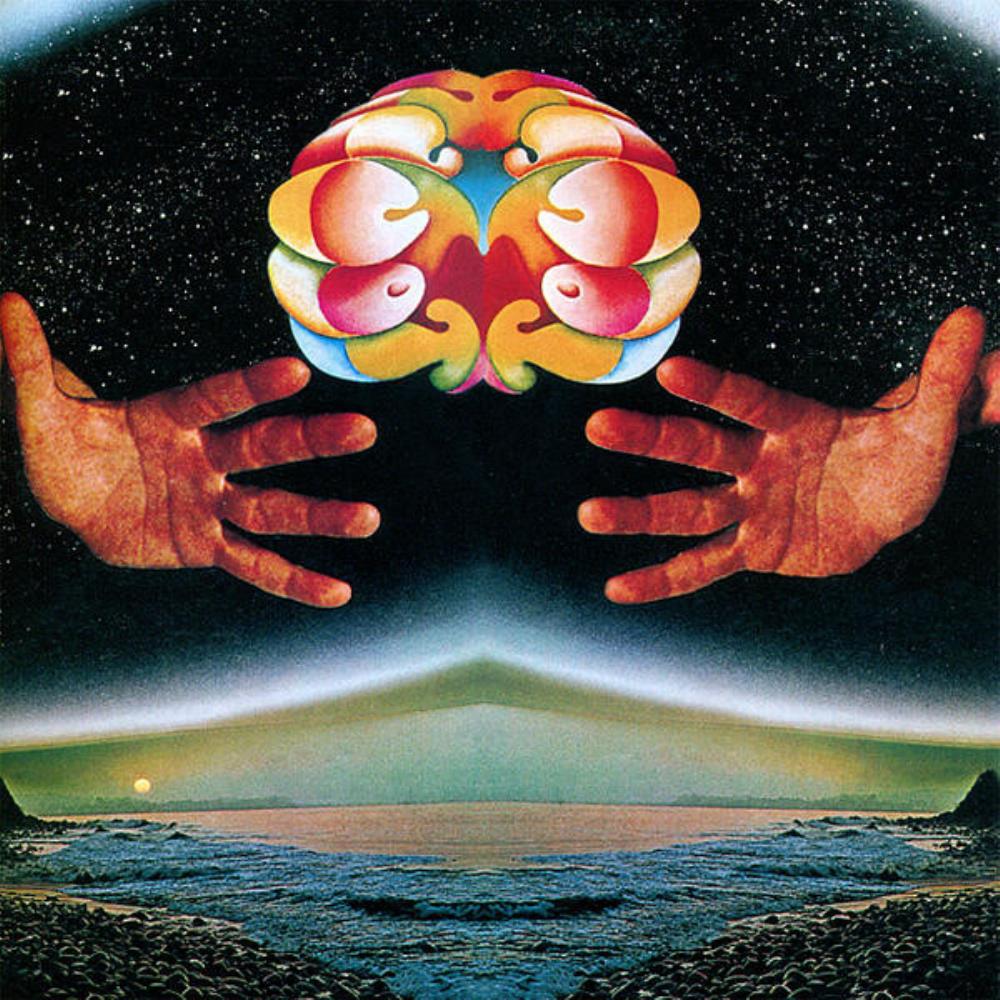
After about six to nine months, Erik left, and was replaced by future Stepson guitarist, Joey Newman. Now THAT was a group of wild, heavy-partying guys, and though we had begun to record for Elektra Records, the band soon self-destructed. That was in 1970, and by 71, Jeff Hawks, Bruce Hauser and myself, began doing gigs around L.A. in a short-lived outfit we called Lil Bit. That lead to Joey joining the fold, and by 72 we had formed Stepson.
How about you, Bruce?
Bruce: My first band, Dickie & the Sierras consisted of two guitars, bass (me), drums and sax. Shortly after I joined we added a singer who was approximately five years older than the rest of us and soon after that the sax player’s dad made him quit to focus on school. At first we played mostly in the basement of my family’s home and a couple of teen dances but then we signed with a manager who got us gigs. There are a lot of colleges within a short drive of central Connecticut so we played lots of fraternity parties and some larger venues like the Student Union Hall at the University of Connecticut and the Mount Tom Ballroom in Massachusetts. We played a variety of musical styles from standards like “You’ll Never Walk Alone”, “Ebb Tide” and “Misty” to classic doo wop ballads like “In The Still Of the Night”, “You Belong To Me”, “Sixteen Candles” and “For Your Love” and up tempo songs like “Rock Around the Clock”, “Roll Over Beethoven”, “Johnny B. Good”, “Long Tall Sally”, “Run Around Sue” and of course “Louie Louie”. We also played some instrumentals like “Sleepwalk”, “Walk Don’t Run”, “Wipe Out” and “Pipe Line”.
My next band was The Windjammers, a quartet composed of Guitar, Hammond Organ, bass (me) and drums. We played exclusively at a teen club at the Connecticut shore every weekend and played songs that were popular at the time and some oldies like “Ooh Poo Pah Doo” and “C C Rider”.
Next I joined a band that was playing night clubs called The Gretschmen, composed of two guitars, bass (me), drums, a male singer, a female singer, and two Go-Go-Girls. When I joined, the Beatles LP Rubber Soul was big and the band played several songs from it along with a mix of other popular songs of the day including R&B hits like “Midnight Hour”, “Knock On Wood” and “Papa’s Got a Brand New Bag”. During a month long show-case at a New York City night club called Harlow’s, we were approached by the song writer/producer team of Pam Sawyer & Lori Burton who took us into the studio where Lori’s husband Roy Cicala was an engineer. We recorded a couple Sawyer Burton songs but they weren’t able to generate any record company interest in the band. That’s when we decided to take our act to Los Angeles and try our luck there. Unfortunately both of our guitarists were in the Connecticut National Guard and couldn’t get transferred to California so they quit the band and took our female singer with them. We replaced the three of them with one guitarist from New York and moved forward as a quartet. We continued playing night clubs and started playing more R&B because it was better suited for dancing. We eventually worked our way across the country from the Northeast to Chicago and finally to Los Angeles. We arrived at L.A. in February of 1967 and the “Summer Of Love” was about to unfold. We hired a keyboard player and continued playing cover songs in clubs and did a few self produced recording sessions trying to get a deal with a record company. During one stretch that summer we were the house band at a club on the Sunset Strip called The Galaxy and alternated weeks with three bands who became pretty famous later that year. A San Diego band called Iron Butterfly, a band from Canada called Sparrow who would soon change their name to Steppenwolf and a South Califronia band called The Fraternity of Man whose song “Don’t Bogart That Joint” became a famous part of the movie Easy Rider. By the end of 1967 being a club band was old hat to us and we were discouraged by our inability to get a record deal so we disbanded. During that stint at The Galaxy we had met and jammed with a keyboard player named Don Galucci. Our drummer John and Don became fast friends and Don eventually confided to John that he was about to make a big change to his group Don & The Goodtimes. A few months later Don asked John to join the band and a month or so after that they called me and asked me to join also. Don & The Goodtimes was morphing into a band called The Fourth Way to play all original music that definitely was not pop. That band became Touch and we went on to record what has become somewhat of a seminal and highly collectible “progressive music” LP.
In early 70’s you all came together and formed Stepson. How did that happened?
Bruce: In 1971 or 1972 Jeff, Lenny and I had a band called Lil’ Bit with a guitarist named Tim and a Hammond B-3 player named Eddie Beyer. We played a couple of clubs around LA and dis-banded. Then in 1972 Jeff got some studio time from engineer/producer Wiley Brooks and called me to play bass on the sessions. He also invited drummer Ron Woods for the early part of the first session which as far as I know wasn’t recorded and Lenny Fagan for the later part of the session and subsequent sessions that were recorded. Guitarist Craig Tarwater also played on the first day of the sessions and Joey Newman played on the rest of the sessions. Those sessions were the beginning of Stepson and one of the tracks we recorded called “Mississippi Dirt Road” will be on the upcoming release of the 2nd Stepson LP/CD on the Rockadrome Label or Rockadrome’s Vintage Label.
“Our equipment was oversized for the room”
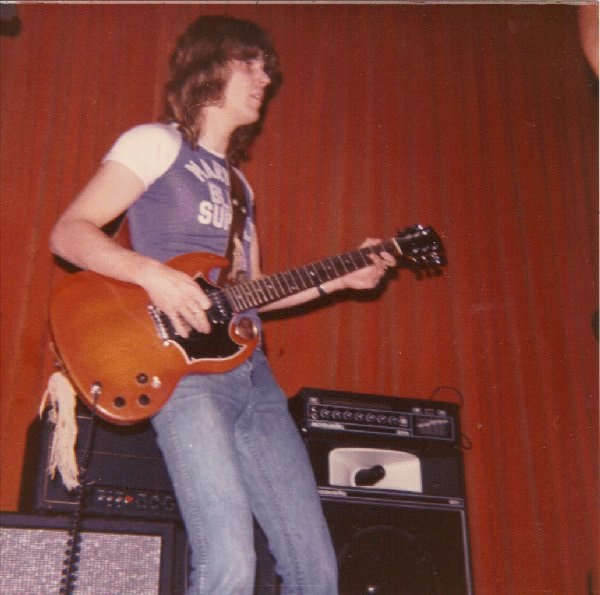
How do you remember some of the early rehearsal studio sessions you had?
Bruce: We rented time at a small converted house called Stronghold Rehearsal Studio and jammed for hours on end night after night. The place was not air conditioned which isn’t a good thing even at night in Southern California during summer so we sweated like we were in a sauna. Our equipment was oversized for the room, so our jams were really loud but they did bear fruit/songs. We later moved to the comparatively posh and well equipped rehearsal studios at Studio Instrument Rentals in Hollywood. Our rehearsals there were even more fruitful because the rooms were set up like an actual venue with a stage, house PA and mixing board. I’d bring my portable stereo cassette deck to rehearsal and plug into the auxiliary outputs of the mixing board which resulted in decent quality recordings. Many of the jams we recorded were crafted into the songs that were on the first Stepson LP. Two songs “Streets Of Alameda” and “Bad Situation” recorded during those live rehearsal sessions will be on the upcoming release of the 2nd Stepson LP/CD on the Rockadrome Label or Rockadrome’s Vintage Label.
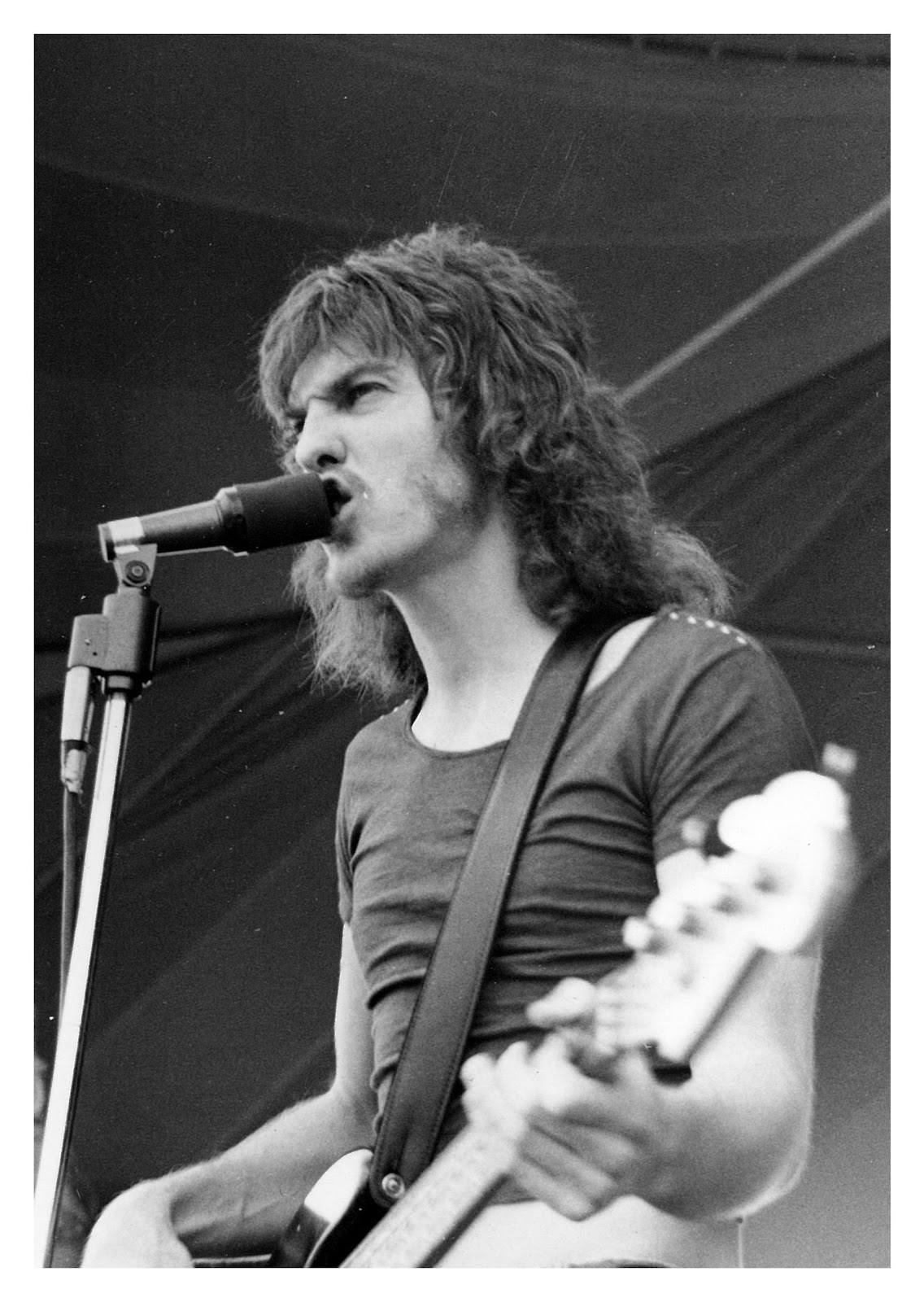
Len: Stepson’s early jamming and rehearsals took place in Bruce’s garage. And believe me, it was hot as hell in there!! Soon enough, we were able to afford a real rehearsal studio with a good P.A., and began to really get things together.
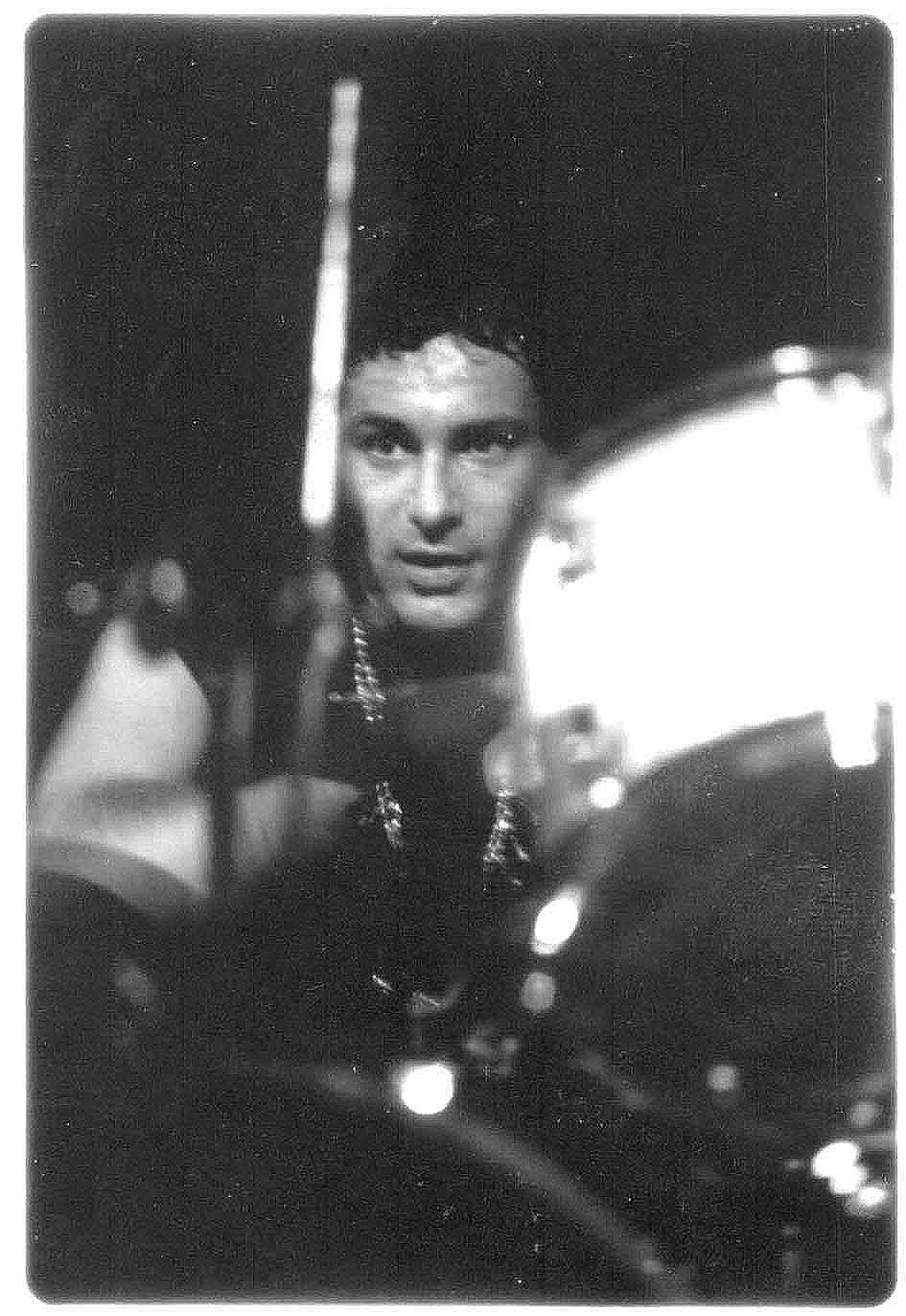
You released two singles, “It’s My Life / Rude Attitude” in the U.S. & Europe on ABC Records and “Rule In The Book / Lil’ Bit” in Japan on the Probe label plus an album in 1974. What are some of the strongest memories from producing and releasing it? Where did you record it and what gear did you use? How many copies were released on ABC Records and what can you tell me about the cover artwork?
Bruce: “It’s My Life”, “Rude Attitude”, “Rule In The Book” and “Lil’ Bit” along with the rest of the songs on the first Stepson LP were recorded at Gold Star Recording Studios in Hollywood with the legendary Stan Ross engineering and Bob D’Orleans producing. If my memory serves me correctly, the sessions took place mostly during the day time and the songs were recorded in very few takes. Producer Bob D’Orleans took the 16 track tapes back to New York to do the mixing and mastering without any input from us. We were disappointed in the sound quality of the finished LP when we finally got to hear it.
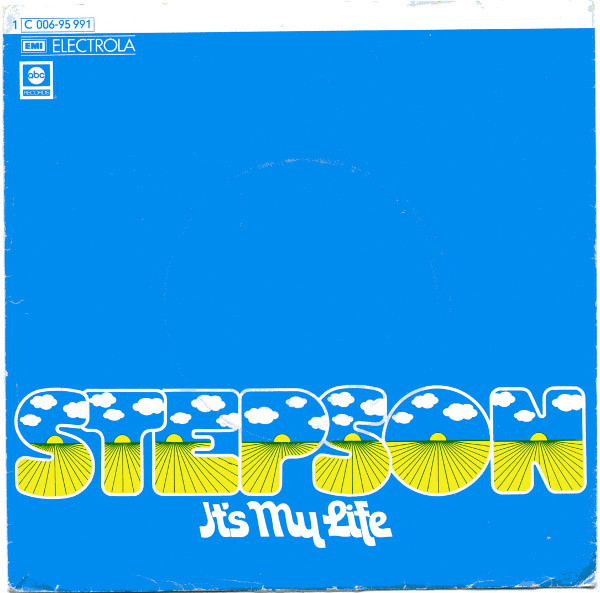
I used my 1968 Fender Precision Bass on every Stepson recording done in the studio, plugged into a direct box so there is no live bass sound on any of those tracks. I used the same bass on the two live recordings that will be on the upcoming 2nd Stepson LP/CD and played through either my Acoustic 360 (on early stuff) or an Ampeg SVT that I bought when we signed the record deal with ABC.
I think I remember hearing that ABC Records pressed 50,000 copies of the Stepson LP but I’m not sure about that.
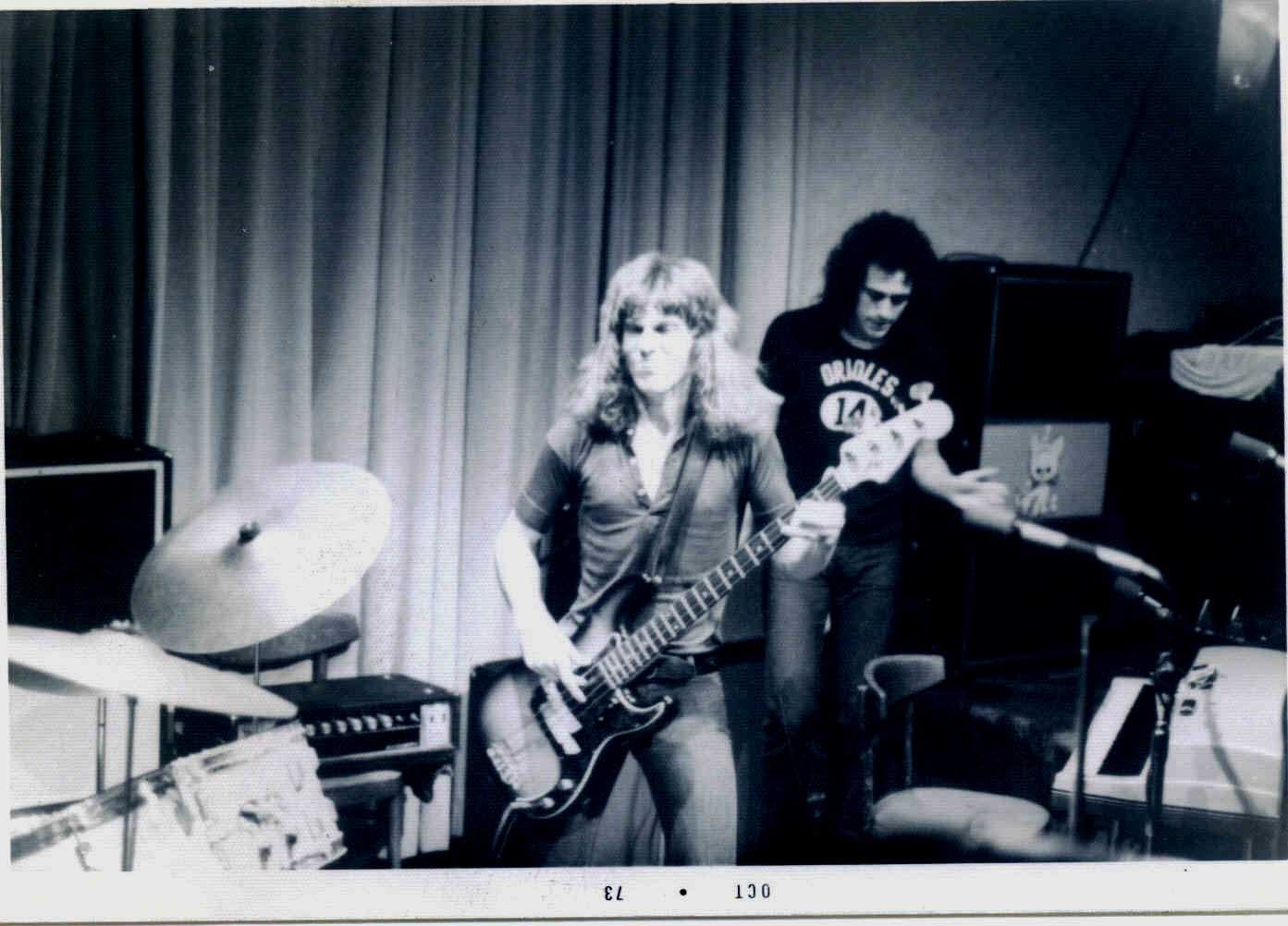
I didn’t even know about the single on ABC or the Probe single until years later when I saw them listed on eBay and bought them.
The cover art for the LP was done by Lorrie Sullivan and Jimmy Wachtel. The kids in the photo are Tommy Smothers Jr. and three of his private school mates.
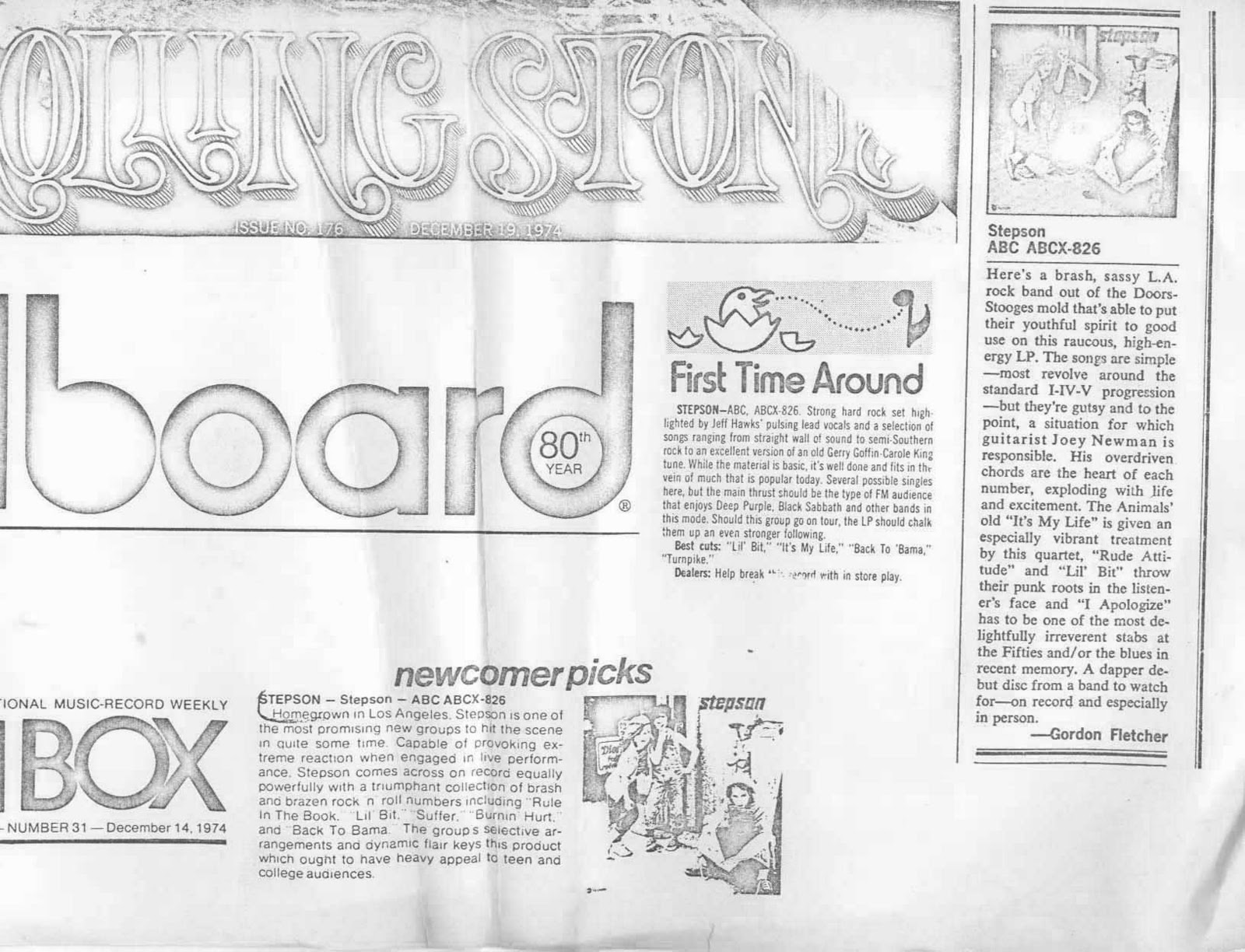
Len: The management company we chose was led by Bud Prager and Gary Kurfirst, out of NYC. They also managed Leslie West and some other name clients. After we got our deal with ABC Records, they recommended we include a cover song by the Animals on our album. They left it up to us to choose which one of their hit singles to do…so long as it had a rebellious feel and lyrics to it. Management wanted it to be clear to any prospective album purchasers, just what KIND of band we were, and what we stood for. The entire LP was recorded in the famous Gold Star Studios in Hollywood, where Phil Spector had recorded most of his hits.
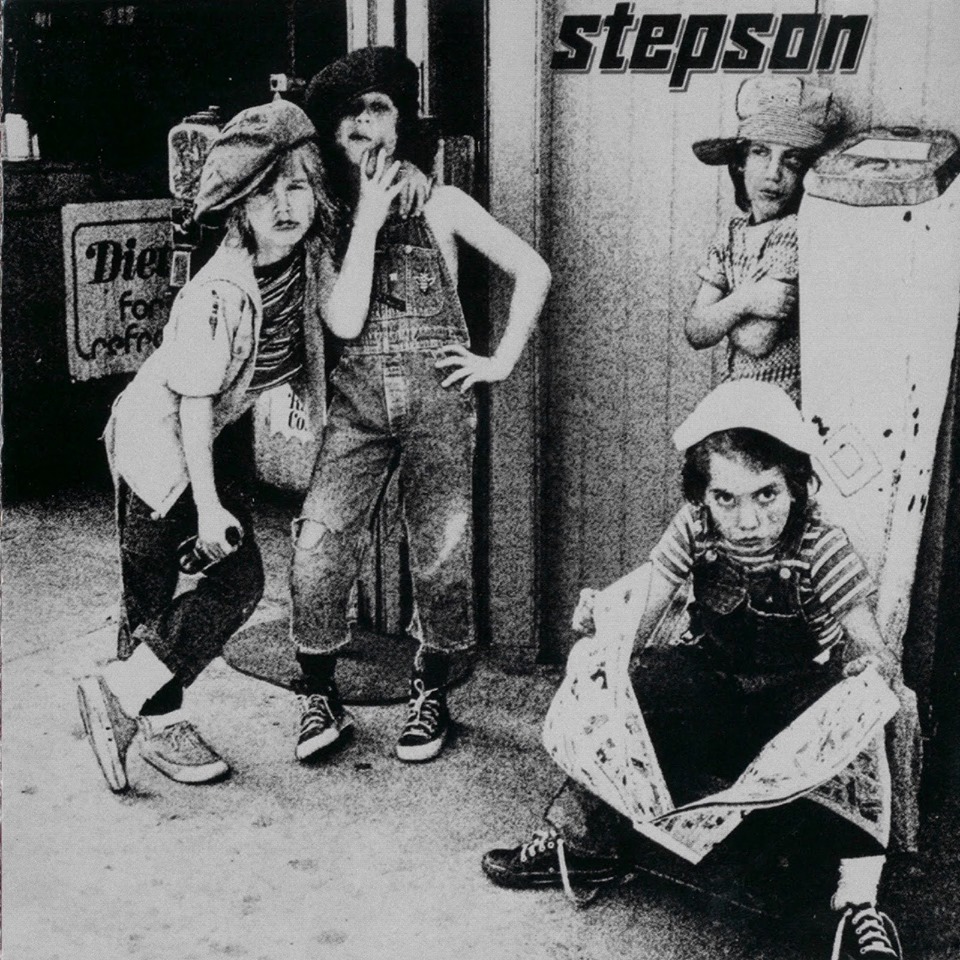
As for the LP cover, two friends of mine, photographer Lorrie Sullivan, and designer Jimmy Wachtel were brought on to bring our vision of the cover to life. We gave them some ideas of what we wanted it to look like, and they expanded upon it, from there. I am still extremely happy with the way it turned out. Just by seeing the front cover, a potential listener should know exactly what kind of music would be inside!!
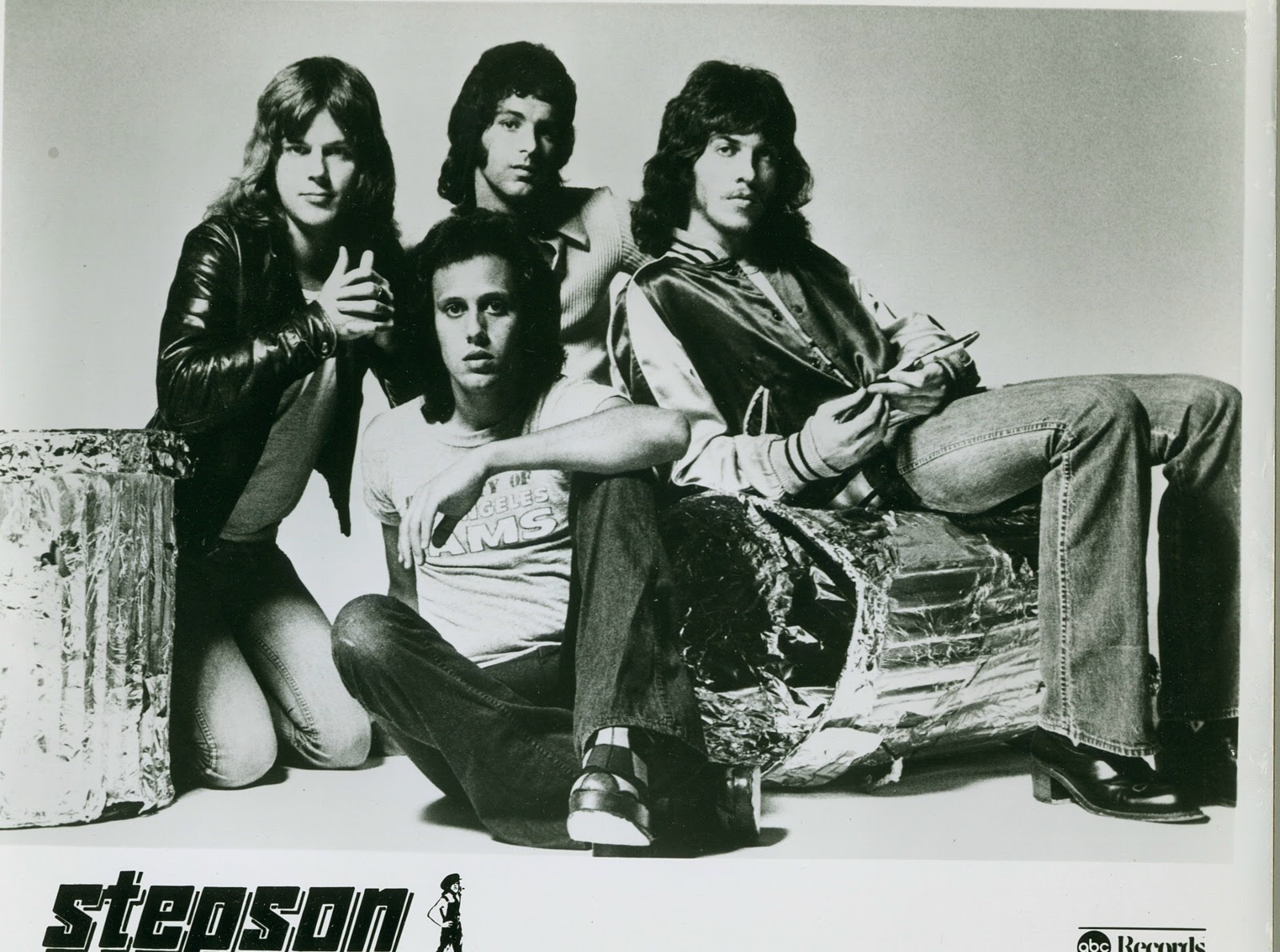
Would you share your insight on the albums’ tracks?
Bruce: First, let me say that from my perspective most of Stepson’s lyrics were very tongue-in-cheek (a figure of speech to imply that a statement or other production is humorously intended and it should not be taken at face value).
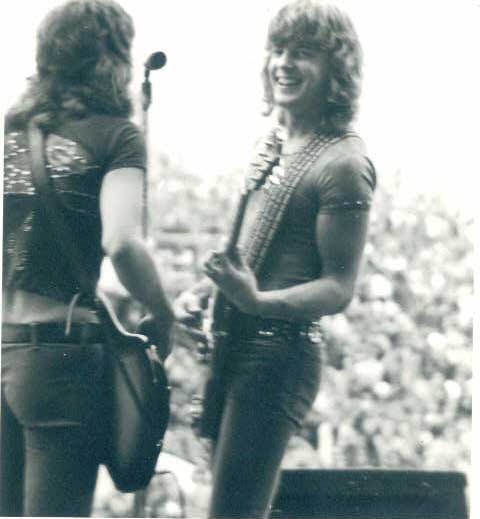
“Rule in the Book”
Rockin’ statement of rebellion against contemporary norms.
“Lil’ Bit”
Rockin’ foundation with Sha Na Na (if they wrote songs) style lyrics but on the dark side describing a girl crazy guy.
“Rude Attitude”
Medium tempo rocker with lyrics depicting how a guy might envision himself (Mr Macho) and his interactions with everyday life in his imagination.
“It’s My Life”
Cover song to appease the producer. Great song but we had plenty of original material.
“I Apologize”
Medium tempo ballad. It’s a comical story of the boy vs girl relationship scenario.
“Suffer”
Dramatic ballad that builds throughout the song depicting the potential problems that evolve during the boy vs girl relationship scenario.
“Back to Bama”
Hot 70’s version of a 50’s style Rock & Roll song (Chuck Berry/Little Richard) depicting the clash between Baby Boomers coming of age and the established norms prevalent in the early 1970’s southern U.S..
“Man I’m a Fool”
A ballad with big builds and comedic lyrics depicting the boy vs girl relationship scenario.
“Turnpike”
Party song depicting a vagabond type carefree hippy life style.
“Burnin’ Hurt”
Powerful music with lyrics depicting a guy’s painful perspective of the boy vs girl relationship scenario. Pretty dark.
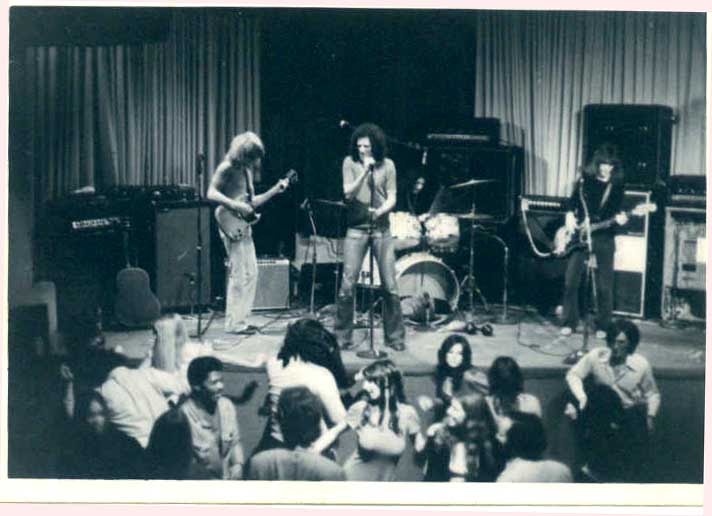
Len: My favorite song on the album remains “Rude Attitude.” I love the nasty, sauntering feel of it, and the main guitar riff is simple, yet as hooky as can be. Jeff’s lyrics are so visual, too. The song expresses the band’s outlook, perfectly. The lines, “When I see my old lady/I call her a whore/That’s my attitude/I got me a .38/I know what it’s for/It’s my attitude…it’s rude !!!”, says it all. By the way, somehow, the writing credit for that song, that appeared on the back cover and label, itself, are TOTALLY wrong. None of us have never heard of the two guys who were listed as the composers, and it still remains a mystery to us as to how they were credited as the writers.
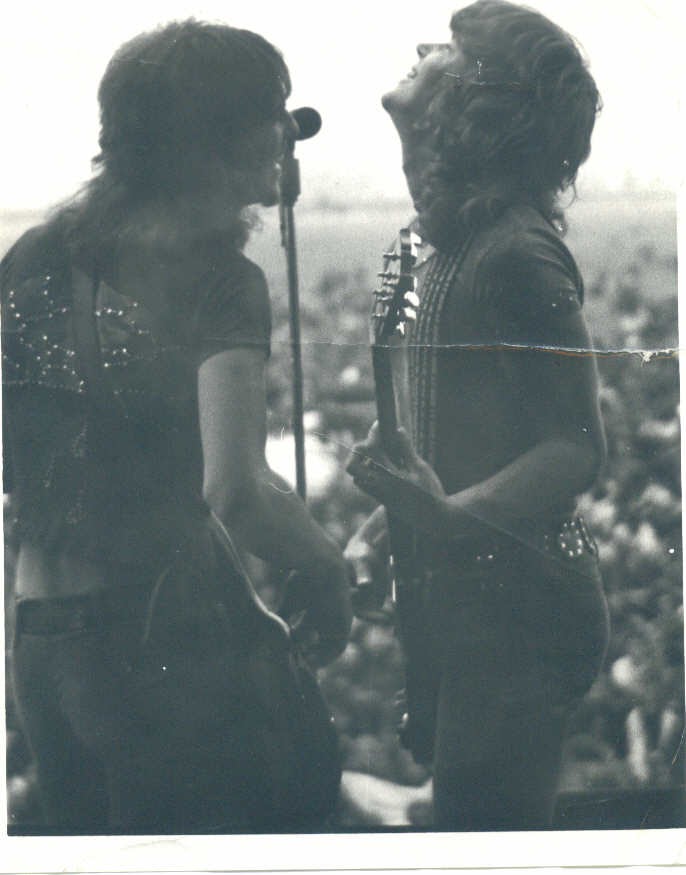
Where did you tour?
Bruce: Stepson played outside of California once as the opening act for Quicksilver Messenger Service at a concert in Reno, Nevada.
We played most of the concert venues in the greater Los Angeles area; Long Beach Auditorium, Long Beach Arena, Santa Monica Civic Auditorium and the Shrine Auditorium as the opening act for Steely Dan, Guess Who, T-Rex, Mountain and others.
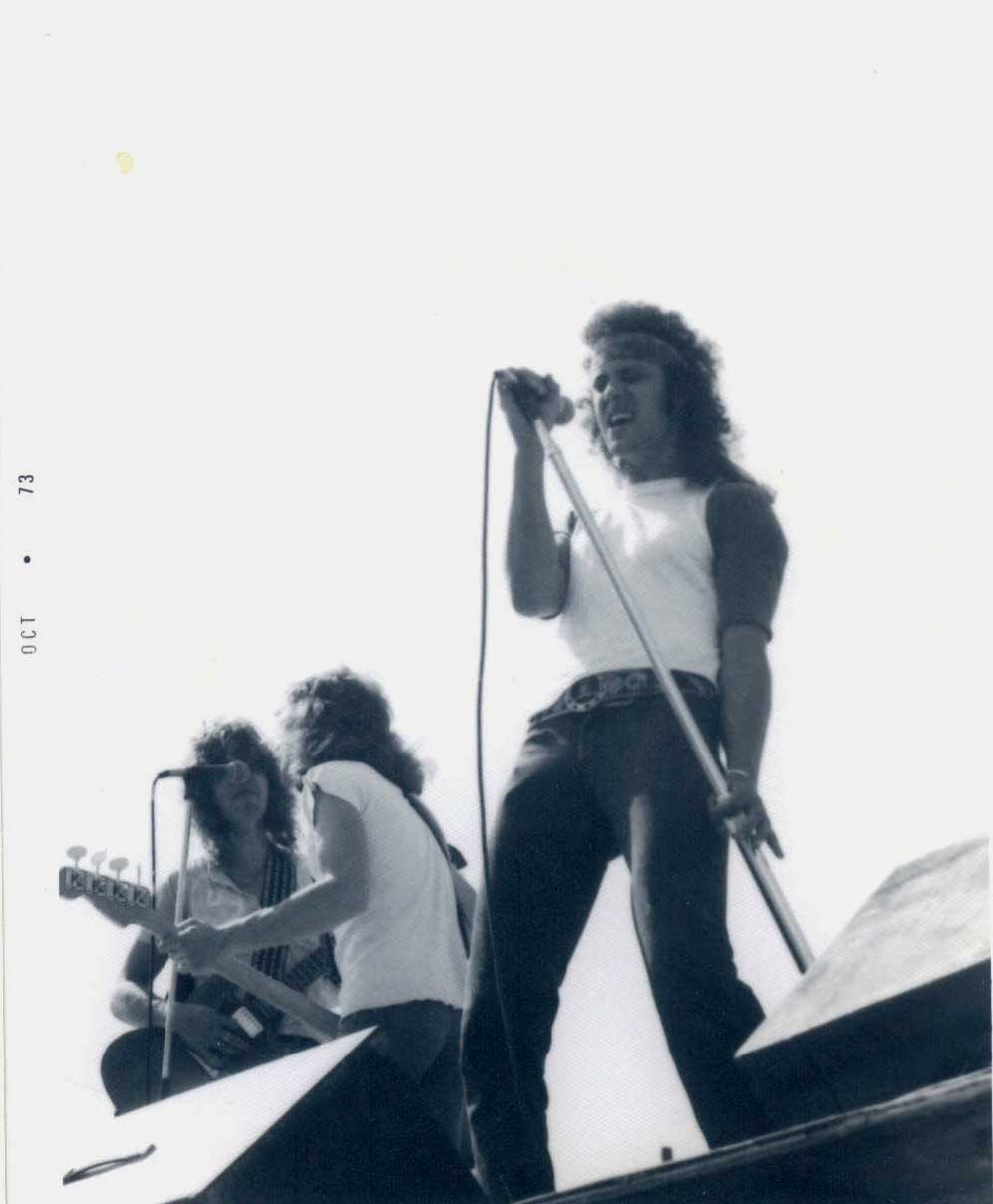
We also played two large outdoor concerts;
1) November Jam at Ontario Motor Speedway in Ontario, Ca. with multiple groups including Three Dog Night, Guess Who, Chuck Berry, Tower Of Power and Azteca.
2) Memorial Stadium in Escondido, Ca. with multiple groups including Dr Hook & the Medicine Show and Lee Michaels.
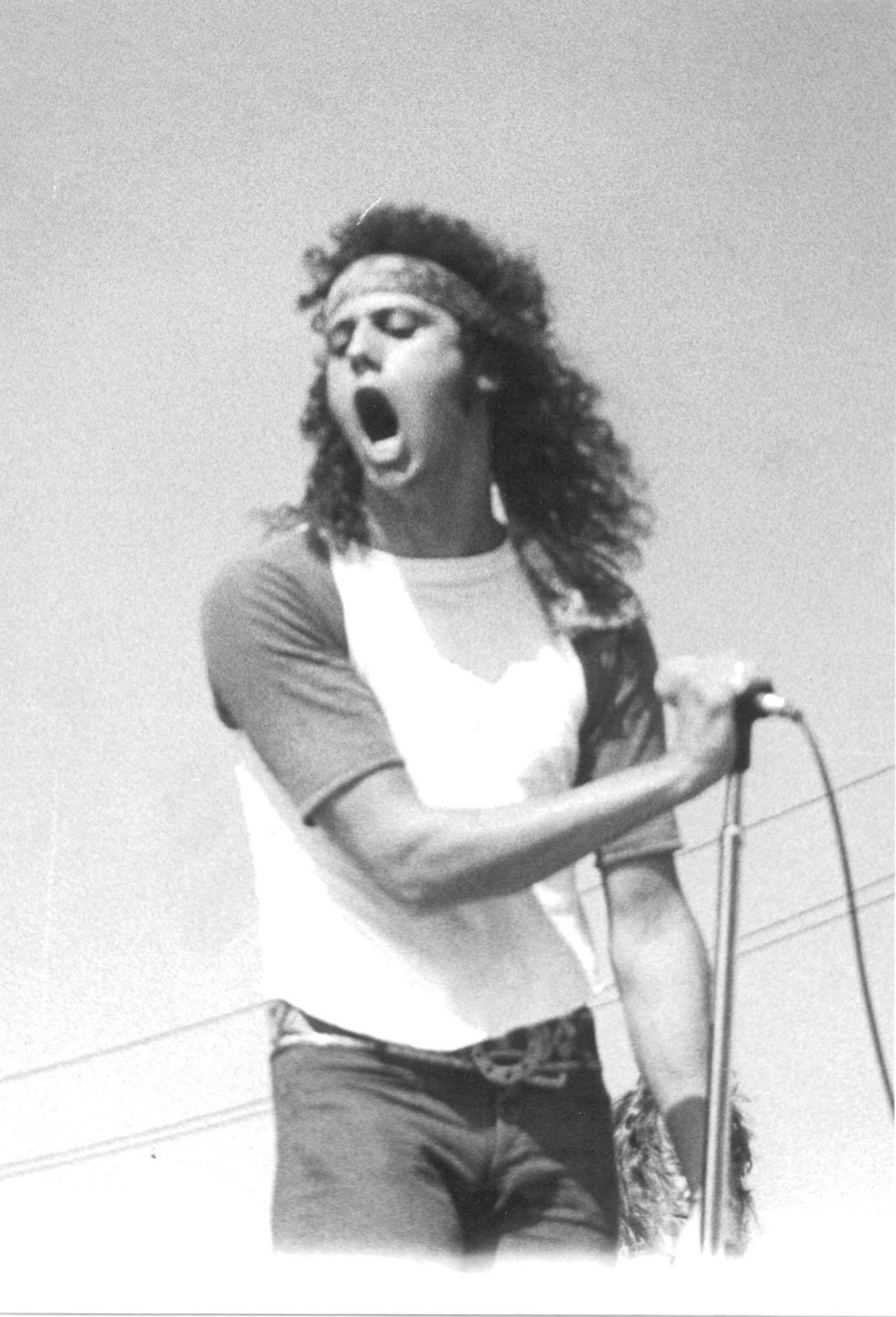
We also had at least 10 multiple night gigs at the world famous Whiskey A-Go-Go in Hollywood and a hand full of multiple night gigs at a showcase club in Hollywood called Starwood.
Len: Jerry Heller was our booking agent for most of our existence, and man, he kept us busy!! And that was fine with us, because we wanted to play!! Between 72-74, we became residents at The Whisky, and when not there, we performed at most every, large, prestigious, concert venue in the Southern California area. The Santa Monica Civic Auditorium (several times), opening for top bands like T. Rex; Long Beach Auditorium, also several times; The Shrine Auditorium; the Hollywood Palladium; The Long Beach Arena, opening for Mountain; and lots more I can’t recall at this moment. We also occasionally played out door festivals, appearing on bills with many famous bands of the time. But thanks to Mario, DeeDee and Elmer at the Whisky, we thought of the Whisky as our home. As for crazy stories, it seemed like most every day, Stepson was involved in some humorous, interesting events. We shared many laughs and good times together.
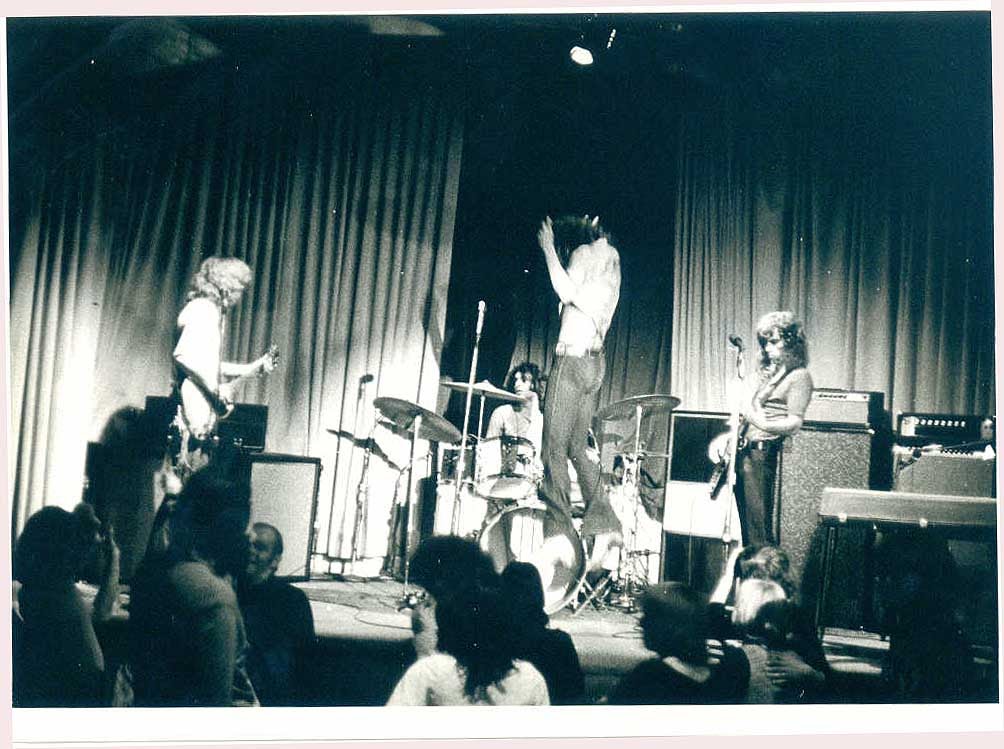
Any crazy stories you would like to share with us?
Bruce: None in particular and too many to mention.
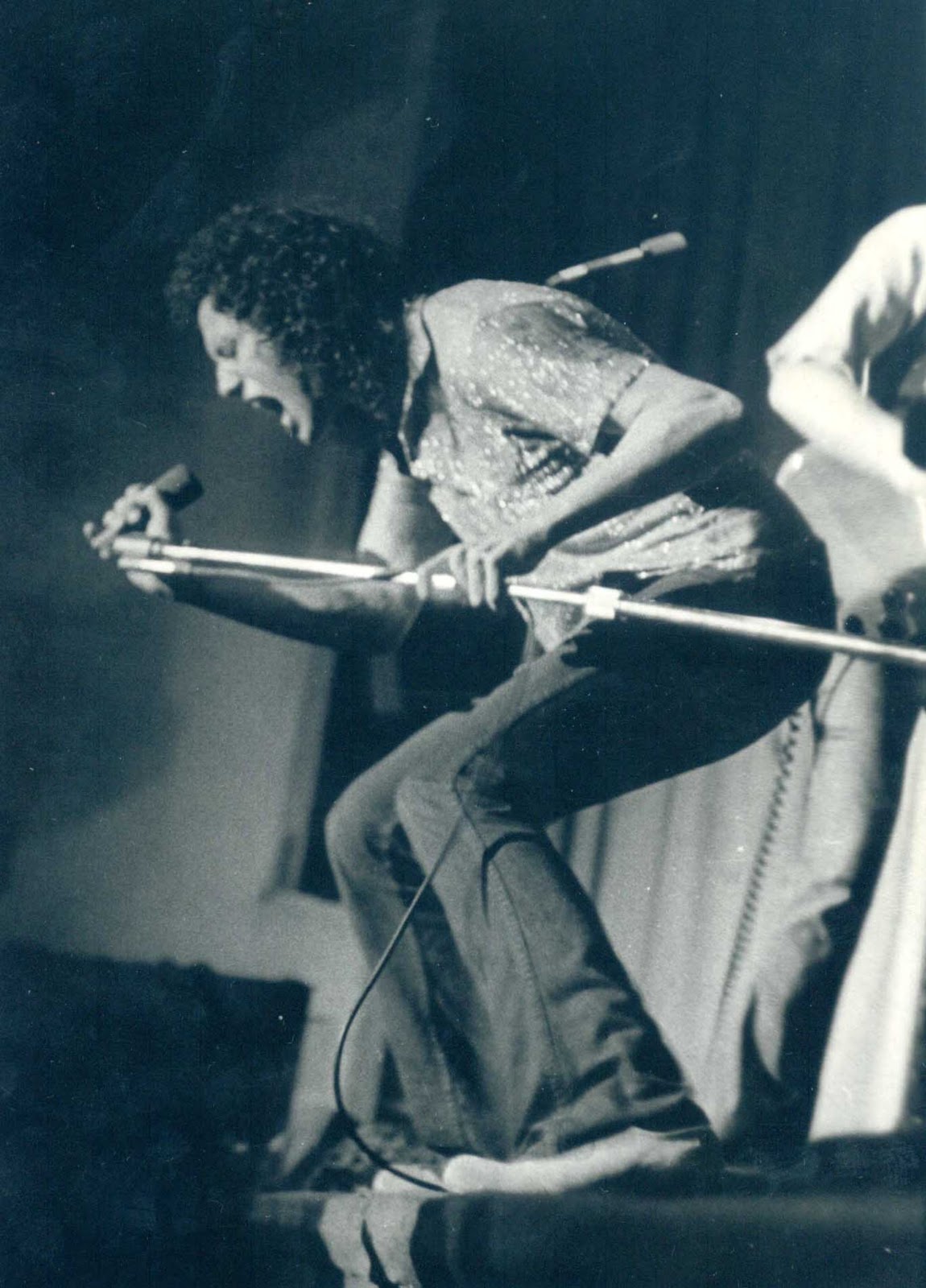
Len: But one story was NOT so funny. We played in Reno, opening for Quicksilver Messenger Service, and I almost got into a fist fight with the promoter, when, after, profusely, thanking us for our performance, he refused to get us a ride back to our hotel, and stated that he wasn’t even going to arrange transportation for us to get back to the airport, the next day!! I became enraged, and though it was, by now, almost 2 AM, I phoned Jerry Heller, back in L.A. to tell him what was going on. Jerry was such a dedicated person, that he answered his phone at home, at that late hour, and when I explained to him what was going on at the venue in Reno, he pointedly made it clear to me that I should NOT continue my heated argument with the promoter. “That guy is all mobbed up !!”, he said. “Now that you’ve ‘disrespected’ him, avoid him, no matter what!! Just get the hell out of there!!” Fortunately Quicksilver were staying at the same hotel as we were, and they, graciously, gave us a ride back to the hotel. In the elevator going up to our rooms, Dino turned to us and said, “Just remember for the future. If it ain’t in your contract, it ain’t gonna happen!!” Somehow, we arranged for transportation to the airport, the next day, though.
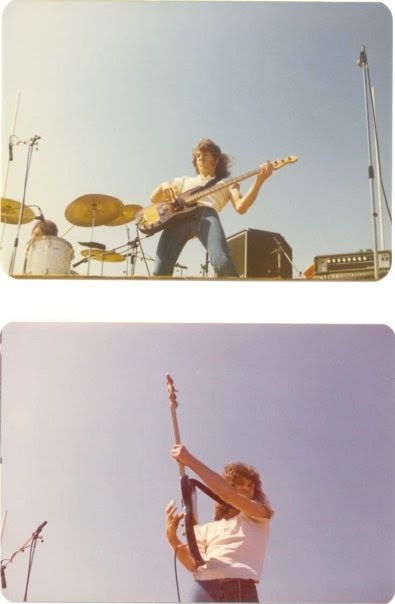
What happened next?
Bruce: Stepson disbanded and I accepted an offer from my old friend and Gretschmen drummer John Bordonaro to play bass in a show band doing a steady in-town gig (almost unheard of in L.A.) at a Holiday Inn lounge. That gig was 6 nights a week and lasted 14 months. After that I retired from the music business. That’s when I began trying to work a “normal job” and after 10 years and a few partially successful attempts at various vocations, I studied computer programming and wound up working in corporate middle management for the next 20 years. I retired in 2008 and have been collecting, building, and playing musical instruments for my own pleasure since then.
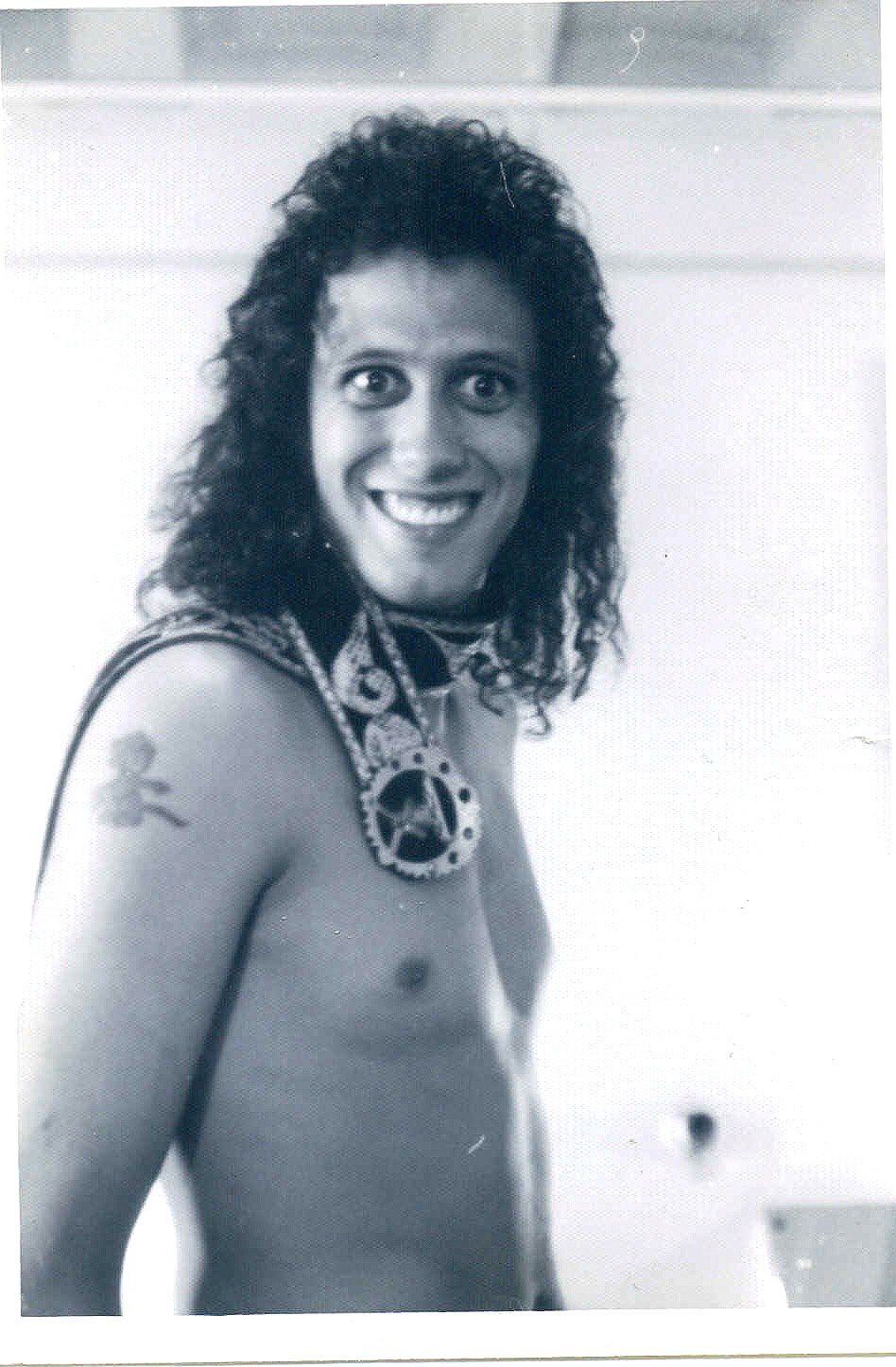
Len: I continued to play drums with some various Rock bands, but never found another one as much as I enjoyed my days with Stepson…that is, until I found one, in 1981, called The Handguns. But nothing really happened for us. In the mid 80’s, I began writing articles for various publications, and even had my own weekly column in a publication called Entertainment Today, where I specialized in covering the L.A. music scene.
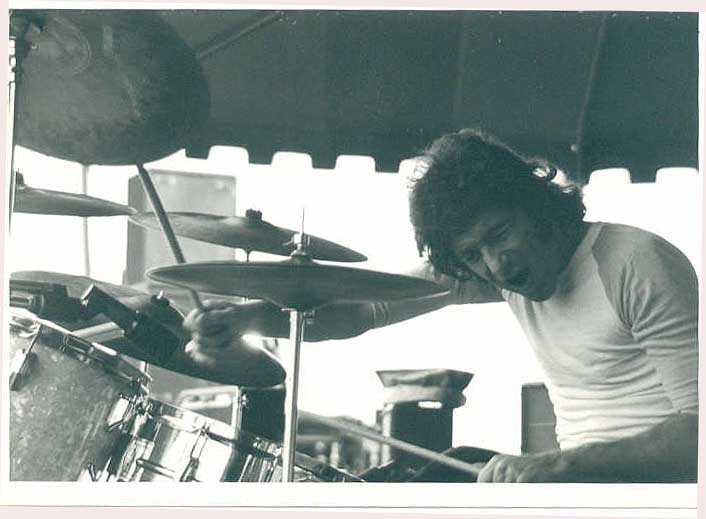
In Jan-Feb of 1987, I was asked to bring in live music to a Sunset Strip nightclub called The Coconut Teaszer, where I became the Booking Director, and remained thru 2000. After that, I booked nights at many clubs in Hollywood, and finally retired in about 2008, or so. The local talent had reached an all time low, and my job was no longer enjoyable and rewarding for me.
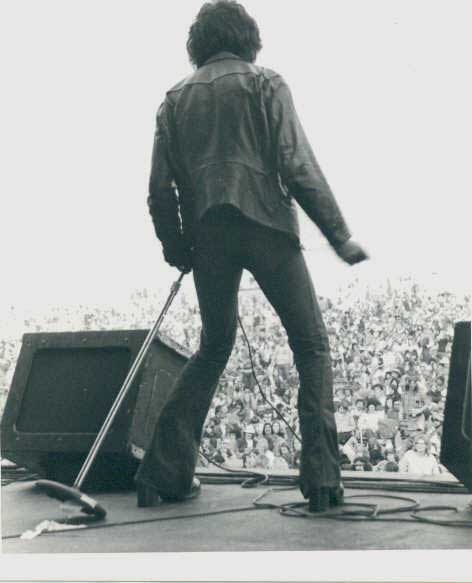
What are some future plans?
Bruce: I plan to remain retired and enjoy whatever time I have left on this planet.
Len: Will I/we record or play?? I can’t speak for the other guys, but to me, the kind of hard, Street Rock that I enjoy playing, is a YOUNG man’s game. And so, I don’t envision myself performing the rough & tumble songs that Stepson played…in a public forum, on stage, anymore. However, there has been some talk from a couple of small record companies, about releasing an album of demo’s and out-takes Stepson recorded between 72-74. We’ll see.
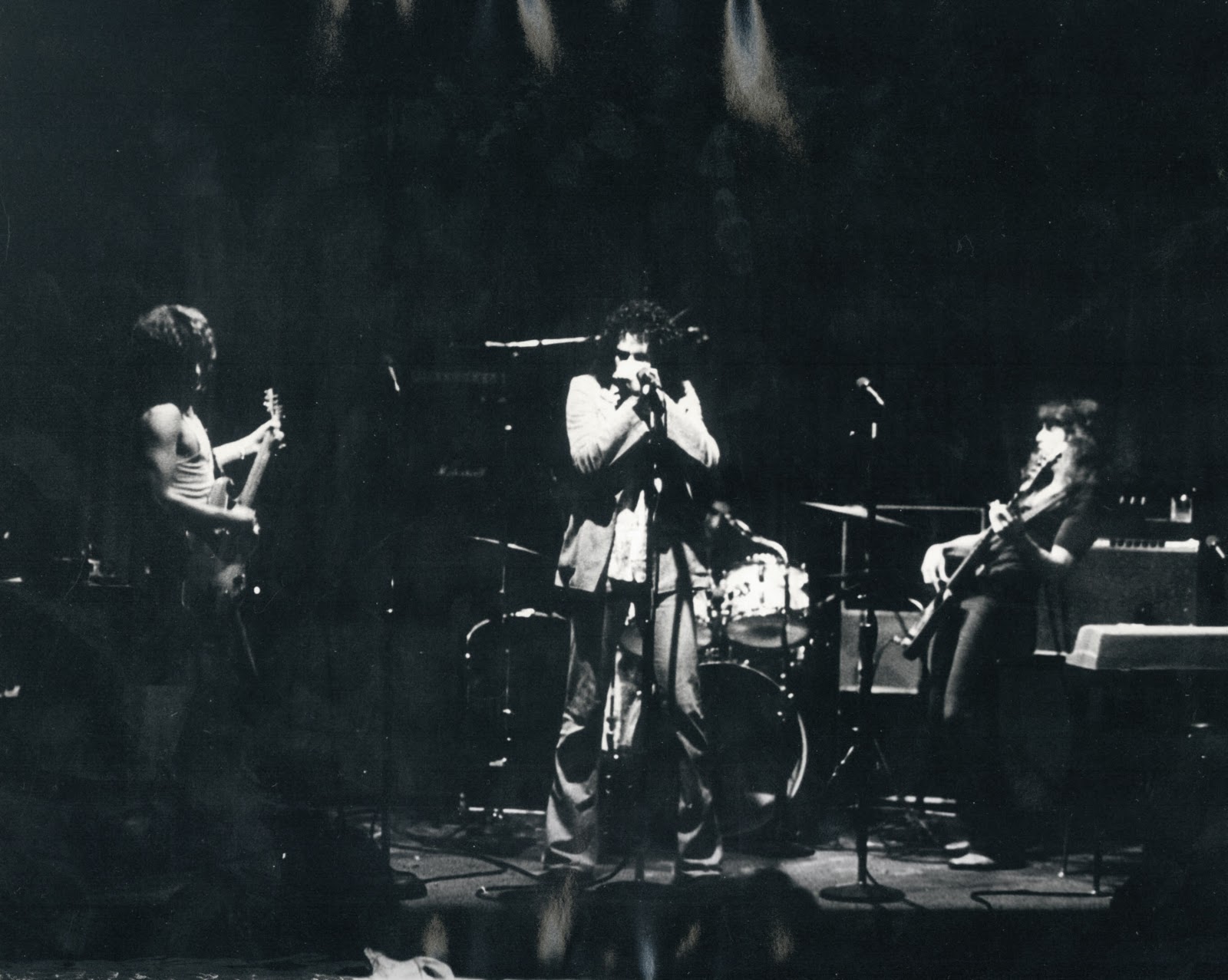
Thank you for taking your time. Last word is yours.
Bruce: Thanks for your interest in our band, and for the opportunity to shed some light on it. If you like our music please watch for the upcoming 2nd Stepson LP/CD to be released in 2012 on the Rockadrome Label or Rockadrome’s Vintage Label.
To all the Psychedelic Baby readers, Rock-On & follow your dreams.
Len: I would like to thank both you, Klemen, and your readers, for remembering Stepson. Also, from my own, sordid experience, for many years, abusing hard drugs and liquor, I respectfully recommend that your readers do not allow such activities to become a habit. Really. Eventually, it does not work out well for anyone.
– Klemen Breznikar

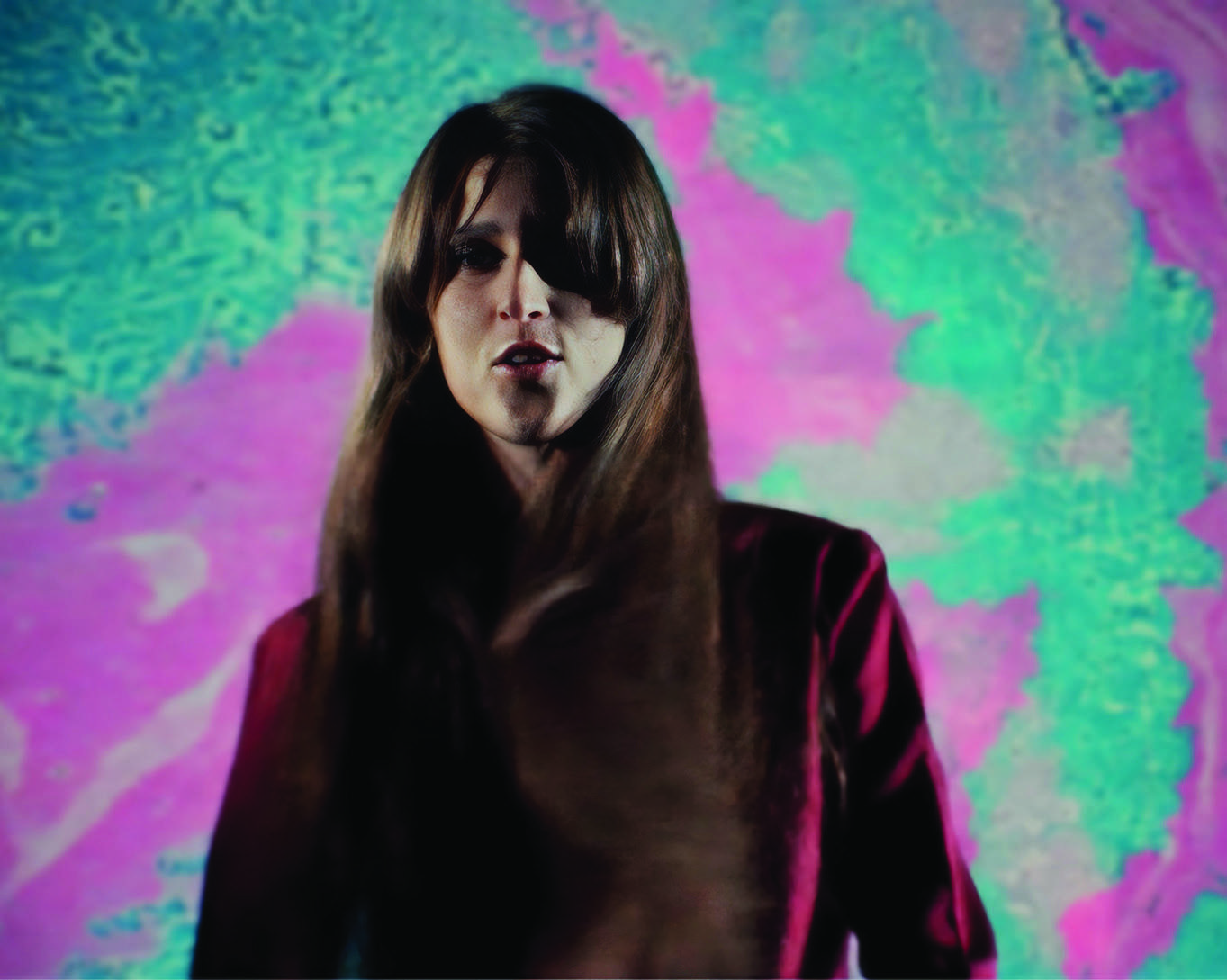
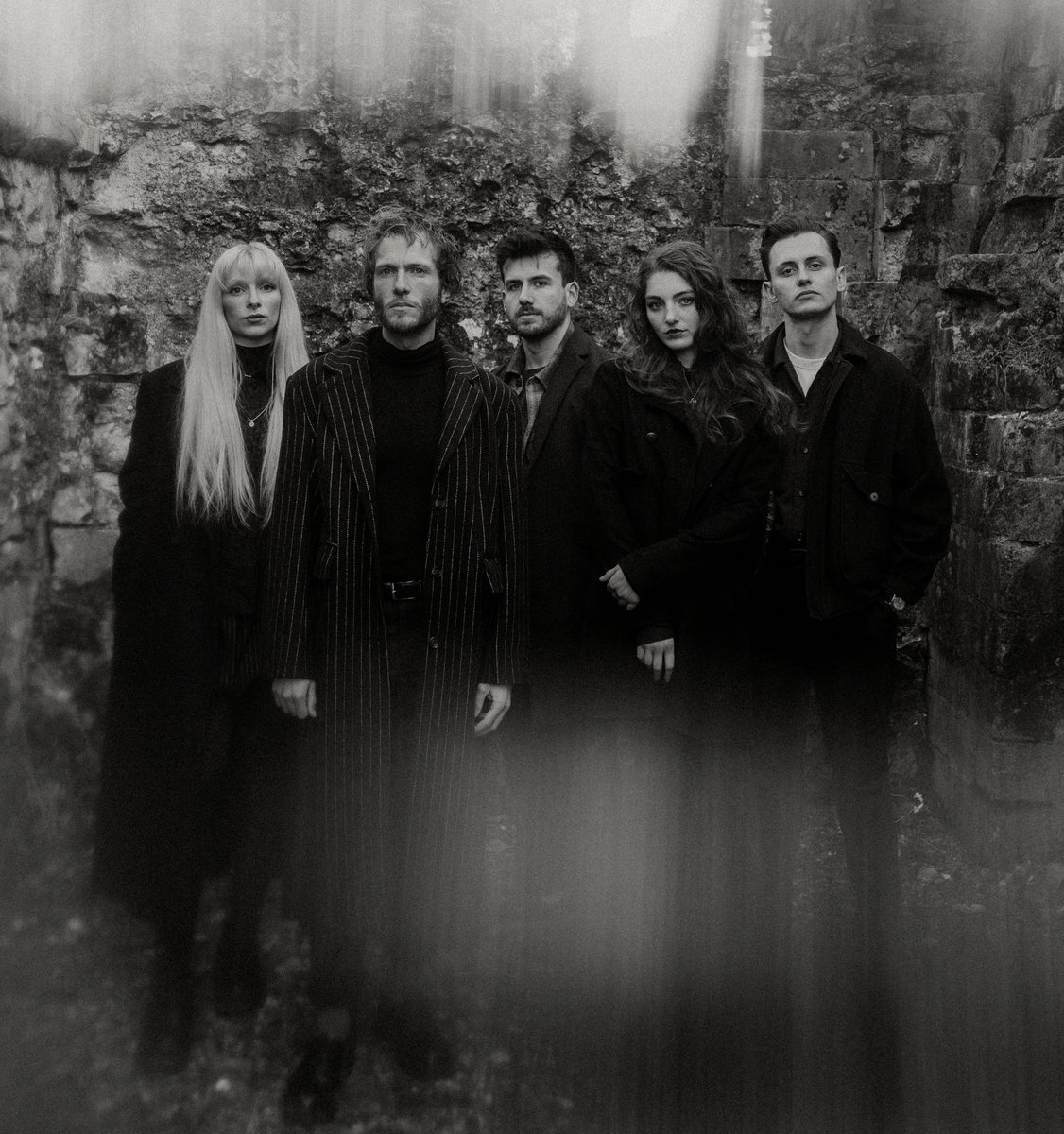
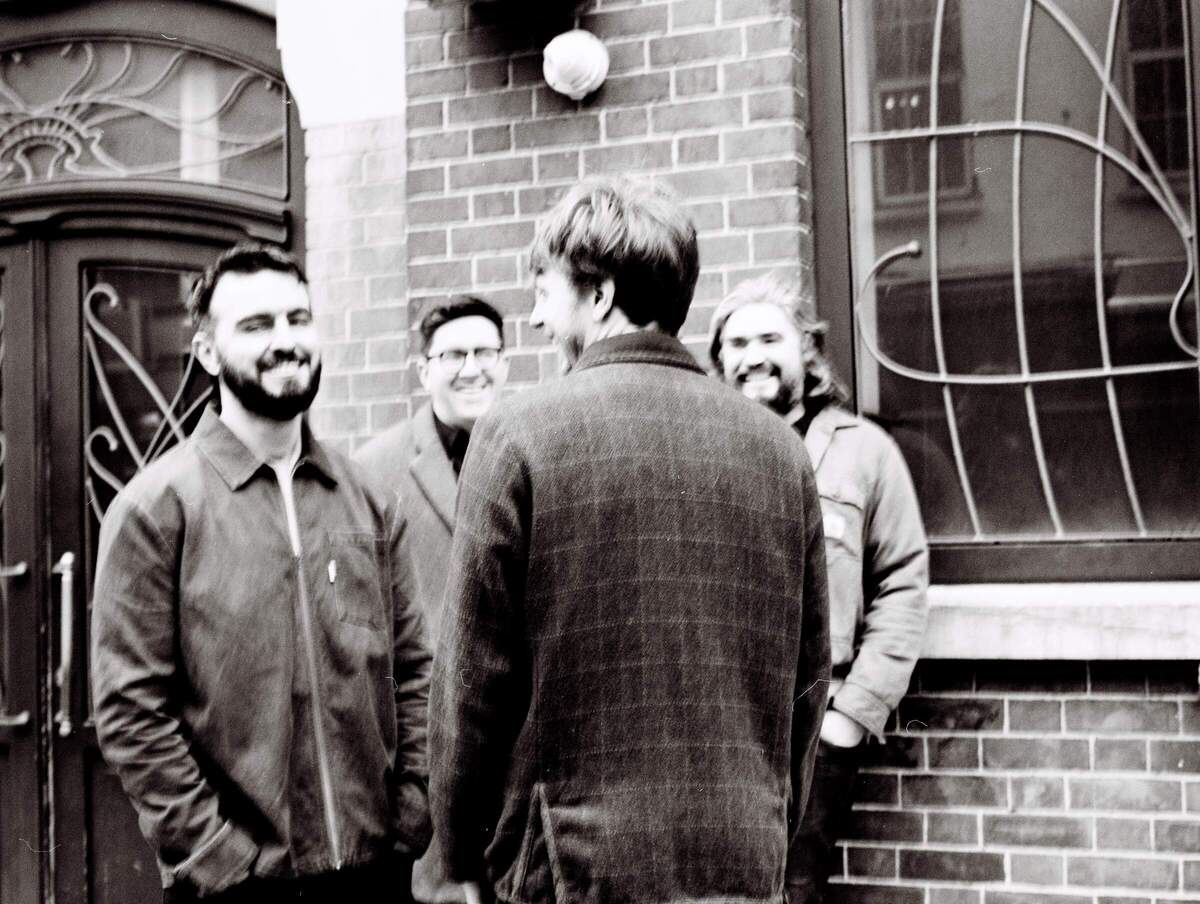
Would like to reach len
I'm an old friend
Rainbow Mike from world peace group
Of
Would like to reach len
I'm an old friend
Rainbow Mike from world peace group
Of
Saw them at the Beach House in Santa Monica. I suppose it was around 1973.
Also saw Stepson at The Beach House in 73. Their frontmen were jerks. They had an attitude.
But I will say they were a damned good band.